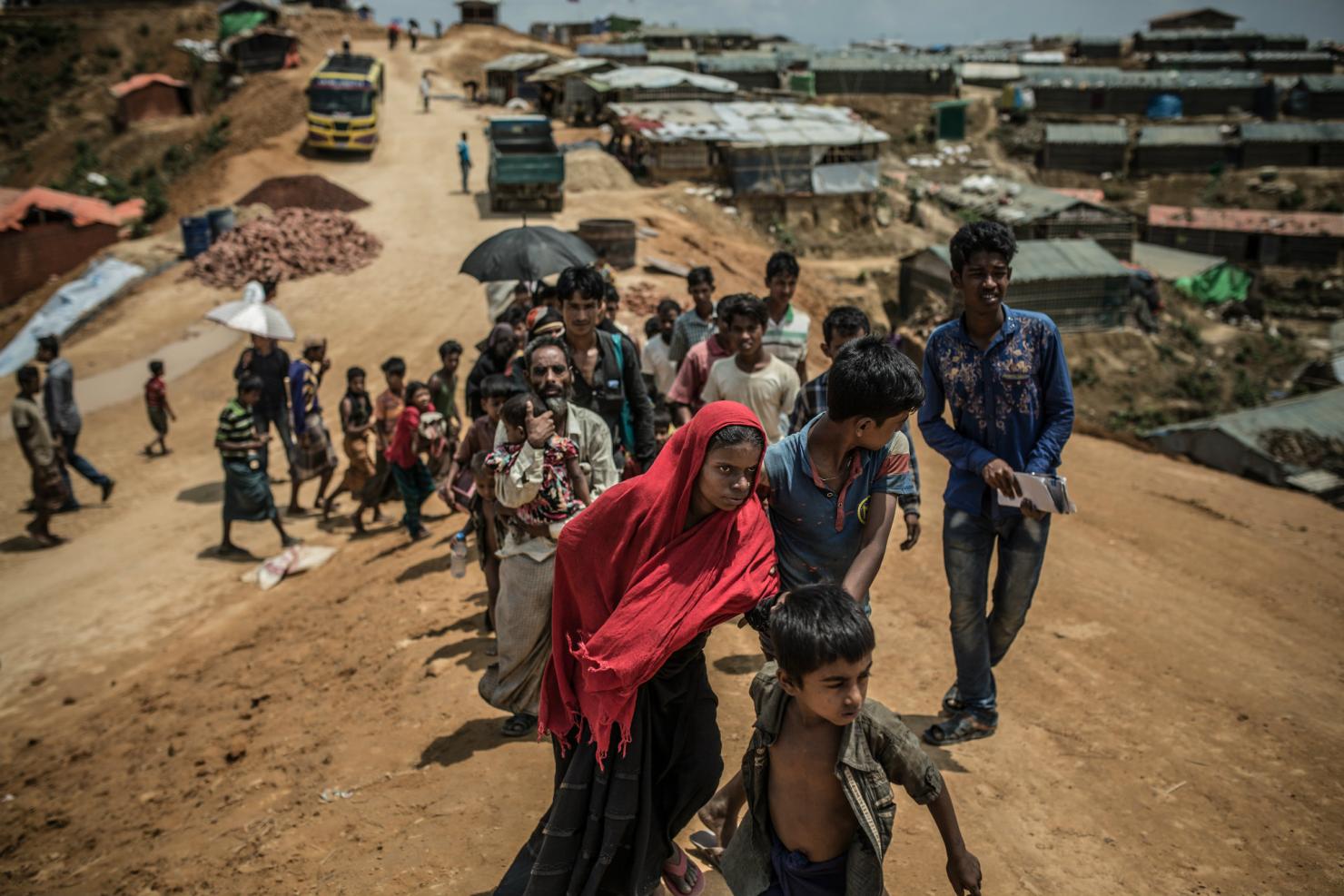Nearly 1 million Rohingya refugees are fleeing what the United Nations have defined as genocide in Rakhine state in Myanmar. The refugees, who are seeking safety in Bangladesh, Thailand, Malaysia, Indonesia, and other nearby locations, are grossly lacking access to healthcare when it is needed most.

BANGLADESH 2017 © Pablo Tosco
More than 700,000 ethnic Rohingya from Myanmar fled to Bangladesh following a campaign of targeted violence against the community that begun in August 2017. Within weeks, the exodus was recognized as the world's fastest growing refugee crisis.
The new arrivals joined some 200,000 other Rohingya who had fled earlier waves of violence and persecution in Myanmar. Most are living in fragile shelters in overcrowded settlements where they are vulnerable to the spread of disease.
The Rohingya are a predominantly Muslim ethnic minority who have lived in Myanmar for hundreds of years. Denied citizenship by Myanmar's government, they are stateless and face particular challenges obtaining access to health care and other basic rights.
Seasonal rains and tropical storms increase the risks of flooding and landslides, compounding the dangers for a community that has already suffered so much. MSF is prepared to respond to the medical needs in the aftermath of such natural disasters.
MSF teams carried out more than 656,200 medical consultations and treated 13,179 inpatients between August 2017 and June 2018. The most common conditions treated were respiratory infections, diarrheal diseases, and skin diseases—all related to poor living conditions. Teams have also worked to improve water and sanitation services, constructing more sustainable latrines, drilling boreholes and tube wells, and installing a gravity-fed water supply system.
The Rohingya had very limited access to health care in Myanmar, and the majority did not receive routine vaccinations. This makes them highly vulnerable to preventable diseases. Vaccination campaigns, supported by MSF, have been instrumental in preventing outbreaks of cholera and measles, and in containing the spread of diphtheria—a rare disease long forgotten in most parts of the world. In December 2017, MSF warned that diphtheria was re-emerging among the Rohingya. Diphtheria is a contagious bacterial infection known to cause airway obstruction and damage to the heart and nervous system, and can be fatal if left untreated. MSF treated more than 6,442 people for diphtheria in Cox’s Bazar district by the end of June 2018.
MSF is also responding to the aftermath of horrific violence against the Rohingya committed by security forces and militias in Myanmar during the “clearance operations” that began on August 25, 2017. MSF has gathered accounts from patients from different areas of Rakhine state describing raids on villages, arson attacks, shootings, stabbings, and sexual violence. Our report provides a startling picture of widespread and targeted violence against the Rohingya. Using the most conservative figures, MSF mortality surveys indicate that at least 6,700 Rohingya were killed within the first month of the violent campaign—including at least 730 children under the age of five.
“When the violence broke out, my husband was taken by the Myanmar military,” 25-year-old Humaira told MSF. “When we fled, I was already heavily pregnant. My baby, Ruzina, was born on the river.... I never have enough to eat, and because of that I can’t breastfeed my baby."
Teams provide medical and mental health care to the victims of violence, including sexual violence. MSF is working with other organizations to respond to the additional needs of pregnant survivors of sexual violence and children born as a result of rape. Women and children in the refugee camps are also particularly vulnerable to abuse and exploitation, and have been targeted by human traffickers. An MSF hotline is available for survivors of sexual violence to receive information about how to reach our services as soon as possible.
– doctorswithoutborders.org